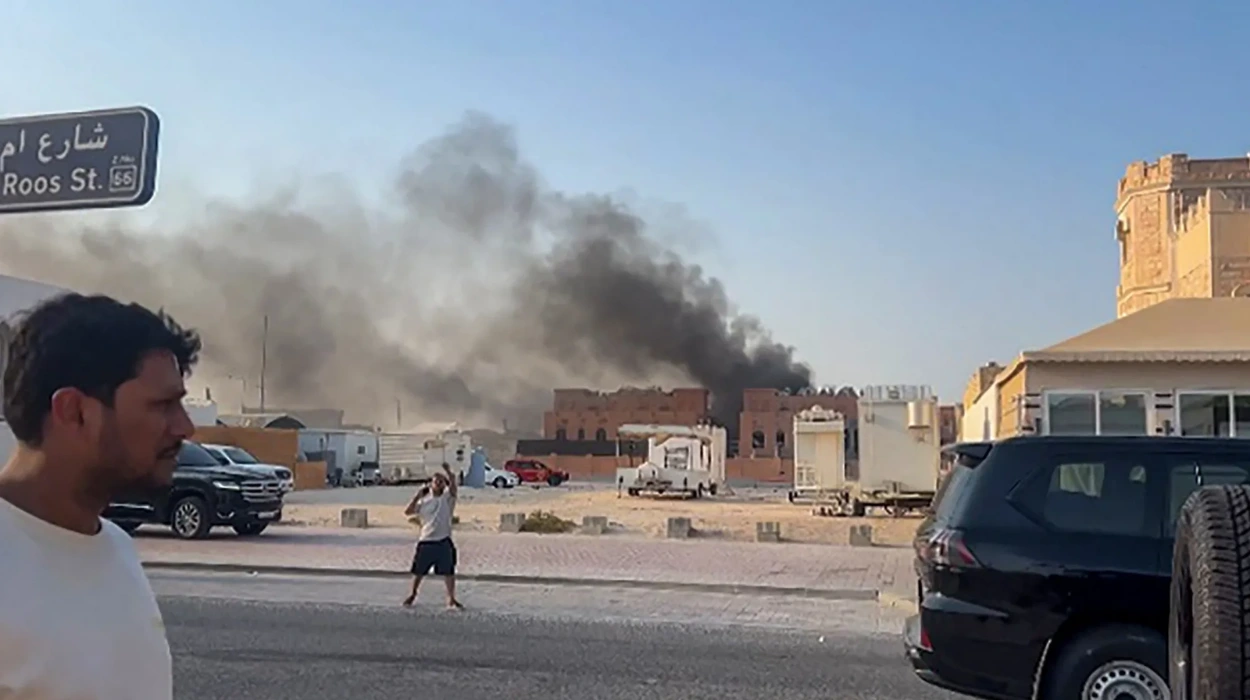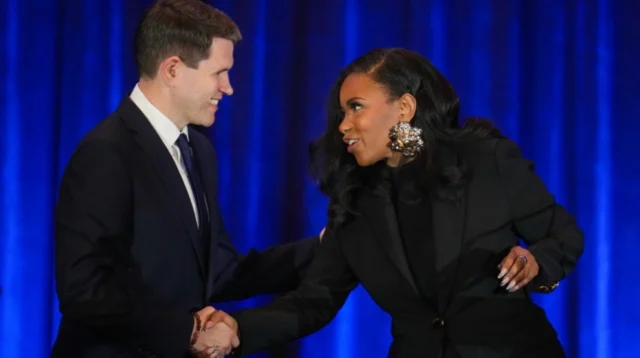On September 9, 2025, an Israeli airstrike on the West Bay Lagoon neighborhood, Doha, Qatar, was a high-stakes attack, one of the most controversial regional escalations in years. The attack was aimed at the senior Hamas leader Khalil al-Hayya who was said to be holding ceasefire negotiations mediated by Qatari officials. Al-Hayya escaped but his son and a few associates were killed.
This was the first military action that Israel had been executed on Qatari soil; a country that not only mediates in the Gaza dispute but also hosts the largest American military base in the Middle East in Al Udeid.
The bombing postponed delicate talks being held to end the Gaza war, which has been going on since October 2023. It further hit Qatar squarely in the diplomatic column and had the immediate effect of creating a sense of disorder in the time-honored coordination processes between Israel and the United States, particularly with the new Trump presidency in charge. Israel defended the strike as a necessary step to destroy terror leaders but critics claimed that it threatened diplomatic gains and a breach of the sovereignty of a close American ally.
Operational Complexity And Diplomatic Fallout
The attack by the Israeli was carried out by over ten highly advanced fighter jets, all of which were U.S. manufactured, attacking a highly populated diplomatic/residential neighborhood. Israeli intelligence felt that Hamas was active in the area with logistic and command infrastructure but the move to do so without prior U.S. consultation created an immediate tension. The U.S. was informed via military back channels a few minutes before the initial impact of the missiles and there was limited diplomatic time to reduce its effects.
It was an Israeli worry that early warning would lead to Qatar being leaked or demanding operational restraint. But it revealed fatal flaws in confidence between Tel Aviv and Washington. The American officials are said to have known of the operation in real time, which restricted their capabilities of taking safeguards of their own resources and contributing to containment of the crisis.
The current de facto head of U.S. foreign policy, however, in his second term as President, formally dissociated himself with the operation, remarking that it was not an approved or planned action of the United States. His brisk denunciation was an exceptional instance of a parting in the presence of two old friends.
Heightened Tensions Between Trump And Netanyahu
This was a fast response and Trump was unusually critical. He declared the strike unacceptable and also warned the Israeli Prime Minister Benjamin Netanyahu that he should not attack Qatar in future without American approval. The criticism underscored the fear by Trump of regional stability and future spillover of his U.S. wider interests in the Gulf.
Netanyahu, nevertheless, was rebellious. He justified the bombing as a self-defense need and charged Qatar with hosting terrorist agents in the guise of diplomacy. This conflict between the two leaders intensified in the days after the attack, and two tense calls were recorded where Trump allegedly said that he was not pleased and that he wanted guarantees of restraint.
The interactions showed a rare collaborative break among the Trump-Netanyahu partnership as it had endured many regional crises before without this apparent muscular tension. The event cast doubt on the way subsequent U.S.-Israel collaboration would take place particularly at the times when the strategic priorities would be at variance with each other.
Regional And International Reactions
Qatar was quick to condemn the attack as a threat to its sovereignty and against international law. The government stressed that it had been hosting peace talks at the behest of international allies, including the United States, and that it charged the Israeli side with sabotaging such talks with unilateral actions of aggression.
It only worsened the outrage by the airstrike killing Qatari security people and civilians. Qatari authorities declared discussing their security relations completely, with both Israel and the United States. The event seriously undermined Qatar’s confidence in the Washington capacity to provide stability and regulate Israeli activities in the area.
The Foreign Ministry of Qatar had declared through a strongly worded statement that any subsequent attacks against our territory will be responded with a calibrated response, and this increased the stakes of possible further escalation. The U.S. base at Al Udeid, which was the heart of the operations in the Gulf as well as Afghanistan, was suddenly in a diplomatically awkward situation.
Gulf States And International Community
In the gulf, there was a rapid denunciation. The United Arab Emirates, Kuwait, Oman and Saudi Arabia expressed serious complaints to the fact that the sovereignty of a member of the Gulf Cooperation Council was violated. Already trying to balance a complicated relationship with Israel after the Abraham Accords, the Gulf States voiced worry that Israeli volleys might disrupt the process of diplomatic normalization.
The United Nations Security Council had a special emergency meeting, in which European nations and Russia stressed the use of restraint and multilateral resolution of conflicts. France, Germany and the UK condemned the unilateral strike, which they said could negate months of back-channel talks and increase tensions throughout the region.
The U.S. allies showed concern about the incident, and some of them stressed that any counterterrorism operations in delicate territories should not violate the diplomatic norms. The Israeli operation was regarded as a pilot project on how far can allies have autonomy without compromising overall diplomatic structures.
Strategic Implications For US Middle East Policy
The Qatar bombing had placed into sharp focus the issue of sustaining a series of strategic alliances within an ever-changing Middle East. Unilateralism and flexibility have been the central focus of Trump foreign policy, but the strike showed the pitfalls of informal channels of coordination. Both friends and foes remarked on the isolation of the Israeli activity with American supervision.
The U.S. is in a dilemma of credibility now. On the one hand, it is still devoted to the security of Israel. On the other, it should give an assurance to the Gulf allies that Washington can be an honest broker and a stabilizer in the region. This accident makes that balancing act terribly complicated.
Defense and diplomatic staff of Washington in Doha and other places will likely face more inspection and reduced collaboration, particularly in the event Qatar acts on its threat to review foreign basing treaties. In a community where continuity and trust is vital, the harm might take months or even years to revert.
Redefining Strategic Autonomy And Alliance Boundaries
What makes the move of Netanyahu to operate independently important is that it reflects a larger trend: U.S. allies in the region are demanding greater military and diplomatic freedom than ever. Be it the diversified defense policy being pursued by Riyadh or the unilateral action taken by Turkey in Syria, the classical system of alliances is being altered.
Israel’s actions in Qatar mark a new threshold. Conducting a targeted strike within the borders of a key U.S. ally without full coordination reflects a changing dynamic in which national security objectives are pursued even at the cost of alliance cohesion. It also signals a regional recalibration in which smaller states like Qatar may reconsider their strategic alignments.
Trump’s reaction, though publicly firm, must now translate into clearer policy boundaries. Future engagements between the U.S. and Israel may require formal mechanisms to prevent unilateral actions that compromise broader regional diplomacy. Failure to do so could weaken the credibility of the United States as a strategic anchor in the Middle East.
The Qatar bombing of 2025 presents a turning point in how regional diplomacy, counterterrorism, and alliance politics intersect. It has laid bare the limits of personal rapport between leaders when national interests conflict. For observers of Middle East strategy, the focus now turns to whether the Trump-Netanyahu relationship can recover and recalibrate or whether this incident signals a shift toward a more fragmented and unpredictable era in alliance-based policymaking across the region.





